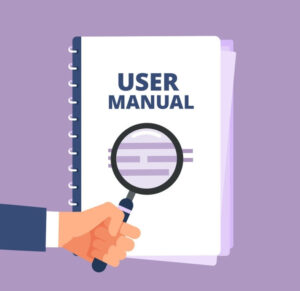Each and every day we make hundreds of decisions. From simple decisions of what to eat for dinner, when to merge onto a road, what to wear, to more complex decisions like a job change, a move, leaving or creating a relationship. Many of my friends are making some complex decisions now, retiring from jobs they’ve had for decades, moving from homes they’ve owned for a similar time, leaving states they’ve lived in all their lives. It’s so interesting to become the observer of those you love, your family and friends, or even yourself (which is harder) when it’s time to make decisions. Whether a big or small decision, doubt and indecision is something we’ve all experienced at some point.
Often, our logical mind gets in the way of our clear instinct or insight especially when it’s a situation that involves a lot of variables (retiring and moving involve not only financial issues, but familial issues — where are your children living, your parents, etc.) but also involves fear of change, of the new. When there are a lot of variables, you may get to a point of overanalyzing, which makes it worse because it totally cuts off your connection to gut instinct (what you know is right) and that brings up all sorts of doubts. When we are stuck in indecision, we can often force the wrong answer or just stumble around in indecision and doubt until we’re stuck and can’t do anything. Pressuring ourselves into a decision is usually a recipe for disaster or regret. The ideal way to make a decision is from a place of steadiness, wisdom, intuition and power.
Yoga contemplates the problem of indecision and doubt. It is a major subject of the Bhagavad Gita, one of the most famous yoga texts. Arjuna, one of the main characters, is a warrior on the battlefield facing the opposing army in a war. As a warrior, it is his dharma (or duty) to fight but he is consumed with doubt. Should he fight, or should he abstain? He sees pros and cons to both courses of action. His doubt is so all-consuming that, as the story begins, we find him lying at the bottom of his chariot. (Haven’t we all been lying somewhere in a state of doubt, whether it’s under the covers or on the bathroom floor?) Lucky for Arjuna, his charioteer is none other than Krishna, who the reader soon discovers is a god. With Krishna’s help, Arjuna struggles with his doubt and ultimately decides on his path. How does Arjuna move from paralyzing indecision to certainty of action? How can we all move away from doubt in our lives?
In the past, whenever I felt stuck in indecision, my instinct was to rush and make a quick decision, often done without a lot of thought and deliberation. I used to be so uncomfortable with indecision and doubt that I just jumped in headfirst, only to then realize I may have moved too quickly and made a wrong choice. This practice of yoga and mindfulness has taught to me to slow down, sit in stillness, breath, move with awareness and deliberation and just let things unfold. It’s a hard lesson and I can’t say I’ve truly mastered it yet. In addition to the mental piece of dealing with indecision, yoga offers a physical practice. The physical practice involves being grounded and moving from a place of stability. I’ve come to realize one of the most important things we can do in making decisions is to first be rooted and grounded, both physically and emotionally. When we are stable and grounded, we are better able to come from that place of intuitive wisdom and power, without second guessing and doubting. This practice of yoga has also given me the opportunity to get to know myself on a deeper level and, in so doing, to tune into my own personal power, my determination and self-confidence. In tapping into that, I feel I am making decisions from a place of confidence and purpose. When we are stable and rooted, mindful and aware, feeling secure and confident in ourselves, we are able to make the best decision that is right for us in the moment, whether it’s simply deciding what to eat for dinner or retiring from a life-long career.
We hope to see you on your mat this week in any of our in-studio or online classes. We know it’s a decision to come to your mat (there are many other things that may move us in another direction) but know you get more stable and grounded, mindful and aware, secure and confident, and better able to make all the decisions that may come up in your life from a place of personal power and intuitive wisdom every time you choose to come onto your mat.
As always, thanks for reading my musings. Namaste, Leslie





